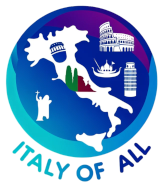The province of Pordenone, located in the Friuli Venezia Giulia region of northeastern Italy, blends a rich industrial heritage with vibrant cultural traditions and natural beauty. This relatively young province, established in the 1960s from parts of Udine, has quickly developed a distinct identity, underpinned by economic dynamism and a strong sense of community.
Geographically, Pordenone is characterized by its diverse landscapes, which range from the majestic peaks of the Dolomites in the north to the fertile plains of the Tagliamento River in the south. This variation in terrain supports a wide array of outdoor activities, from mountain hiking and skiing in the Alpine areas to cycling and bird-watching in the river valleys and wetlands.
Historically, Pordenone has medieval origins and grew significantly under the rule of the Venetian Republic from the 15th to the 18th centuries. This Venetian influence is evident in the architecture of the historic city center, particularly in the ancient palaces and churches that line its streets. The city’s main square, Piazza San Marco, is a focal point of historical and social activity, hosting many of the province’s cultural events and festivals.
Culturally, Pordenone is renowned for its active arts scene, including the Pordenone Silent Film Festival, one of the leading international silent film festivals. The province also boasts a lively music and theater scene, with regular performances in various venues, reflecting its residents’ appreciation for cultural diversity and expression.
Cuisine in Pordenone is representative of the broader Friulian culinary tradition, emphasizing hearty, simple dishes made from local ingredients. Polenta is a staple, often served with mushrooms, game, or cheese. The province is also known for its excellent wines, such as Friulano and Pinot Grigio, which are produced in the vineyards along the lower plains.
Economically, Pordenone has developed a robust industrial base, with strengths in manufacturing sectors such as furniture, household appliances, and machinery. The province has also invested heavily in new technologies and sustainable practices, aiming to combine its industrial activities with environmental stewardship. In recent years, there has been significant growth in the service sector, particularly in logistics and commerce, buoyed by the province’s strategic location near major Italian and European transport routes.
Despite facing challenges like economic fluctuations and the need for technological adaptation in traditional industries, Pordenone continues to invest in innovation and sustainable development. Efforts to enhance its cultural offerings and promote its natural assets are key to increasing its attractiveness as a place to live, work, and visit.
Overall, the province of Pordenone offers a compelling combination of economic vitality, cultural richness, and scenic landscapes. Its commitment to maintaining a balanced development strategy ensures it remains a vibrant and progressive part of the Friuli-Venezia Giulia region and Italy as a whole.
Comuni in Pordenone Province:
- Aviano
- Azzano Decimo
- Barcis
- Andreis
- Arzene
- Caneva
- Budoia
- Casarsa della Delizia
- Castelnovo del Friuli
- Brugnera
- Fiume Veneto
- Claut
- Cavasso Nuovo
- Chions
- Fontanafredda
- Cimolais
- Cordenons
- Fanna
- Clauzetto
- Erto e Casso
- Cordovado
- Chiarano
- Meduno
- Meduna di Livenza
- Maniago
- Morsano al Tagliamento
- Montenars
- Pasiano di Pordenone
- Polcenigo
- Sacile
- Pinzano al Tagliamento
- Prata di Pordenone
- Roveredo in Piano
- Porcia
- Pravisdomini
- Sesto al Reghena
- San Giorgio della Richinvelda
- Sequals
- San Quirino
- San Vito al Tagliamento
- Spilimbergo
- San Martino al Tagliamento
- Vivaro
- Tramonti di Sotto
- Vito d’Asio
- Vajont
- Zoppola
- Valvasone Arzene
